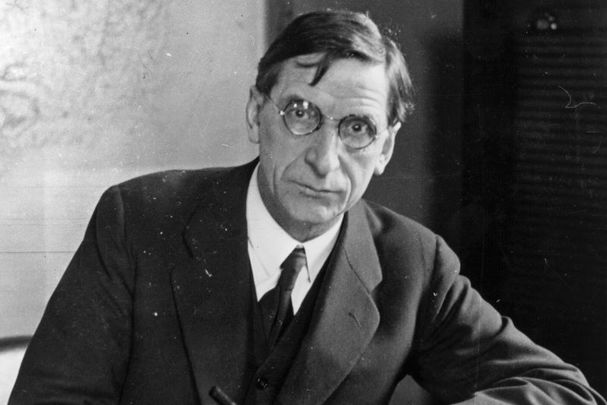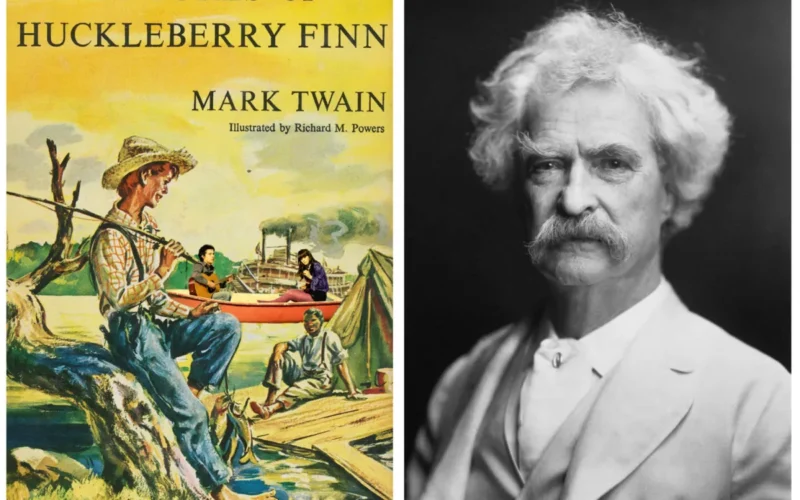On this day in 1885, Mark Twain publishes his famous and controversial novel The Adventures of Huckleberry Finn.
Twain (the pen name of Samuel Clemens) first introduced Huck Finn as the best friend of Tom Sawyer, hero of his tremendously successful novel The Adventures of Tom Sawyer (1876). Though Twain saw Huck’s story as a kind of sequel to his earlier book, the new novel was far more serious, focusing on the institution of slavery and other aspects of life in the antebellum South.
At the book’s heart is the journey of Huck and his friend Jim, a runaway slave, down the Mississippi River on a raft. Jim runs away because he is about to be sold and separated from his wife and children, and Huck goes with him to help him get to Ohio and freedom. Huck narrates the story in his distinctive voice, offering colorful descriptions of the people and places they encounter along the way. The most striking part of the book is its satirical look at racism, religion and other social attitudes of the time. While Jim is strong, brave, generous and wise, many of the white characters are portrayed as violent, stupid or simply selfish, and the naive Huck ends up questioning the hypocritical, unjust nature of society in general.
Even in 1885, two decades after the Emancipation Proclamation and the end of the Civil War, The Adventures of Huckleberry Finn landed with a splash. A month after its publication, a Concord, Massachusetts, library banned the book, calling its subject matter “tawdry” and its narrative voice “coarse” and “ignorant.” Other libraries followed suit, beginning a controversy that continued long after Twain’s death in 1910. In the 1950s, the book came under fire from African-American groups for being racist in its portrayal of black characters, despite the fact that it was seen by many as a strong criticism of racism and slavery. As recently as 1998, an Arizona parent sued her school district, claiming that making Twain’s novel required high school reading made already existing racial tensions even worse.
Aside from its controversial nature and its continuing popularity with young readers, The Adventures of Huckleberry Finn has been hailed by many serious literary critics as a masterpiece. No less a judge than Ernest Hemingway famously declared that the book marked the beginning of American literature: “There was nothing before. There has been nothing as good since.”
In 1776, Lord Dunmore dispatches note of “inexpressible mortification.” Royal Governor John Murray sends a note to William Legge expressing his inexpressible mortification that Major General Sir Henry Clinton had been ordered to the province of North Carolina.
In 1817, Lewis Armistead is born. Confederate General Lewis Armistead is born in New Bern, North Carolina. Armistead is best known for leading Pickett’s Charge at Gettysburg, where he was mortally wounded.

Éamon de Valera was called “the Irish Machiavelli” because he destroyed hero Michael Collins.
In 1948, Éamon de Valera resigns in Ireland. After 16 years as head of independent Ireland, Éamon de Valera steps down as the taoiseach, or Irish prime minister, after his Fianna Fail Party fails to win a majority in the Dail Eireann (the Irish assembly).
In 1964, the United States punishes nations for trading with Cuba. The United States cuts off military assistance to Britain, France, and Yugoslavia in retaliation for their continuing trade with the communist nation of Cuba.
In 1965, an avalanche killed 26 people in British Columbia. Some 26 people are killed in a glacial slide and avalanche on this day in 1965 in British Columbia, Canada. The victims were miners who were removing copper ore from underneath a glacier.
In 2001, Dale Earnhardt killed in crash. Dale Earnhardt Sr., considered one of the greatest drivers in National Association for Stock Car Auto Racing (NASCAR) history, dies at the age of 49 in a last-lap crash at the 43rd Daytona 500 in Daytona Beach, Florida.
In 2003, an arsonist sets fire in South Korean subway. On this day in 2003, a man ignites a gasoline-filled container inside a subway train in Daegu, South Korea. The blaze engulfed the six-car train, before spreading to another train that pulled into station a few minutes later.
In 2011, the Green River serial killer pleads guilty to his 49th murder. On this day in 2011, in a Kent, Washington, courtroom, Gary Leon Ridgway pleads guilty to the 1982 aggravated, first-degree murder of his 49th victim, 20-year-old Rebecca Marrero.
If you enjoy reading the Virgin Islands Free Press, please let John know by sending $25.00 via PayPal to: johnfmccarthy807@msn.com

